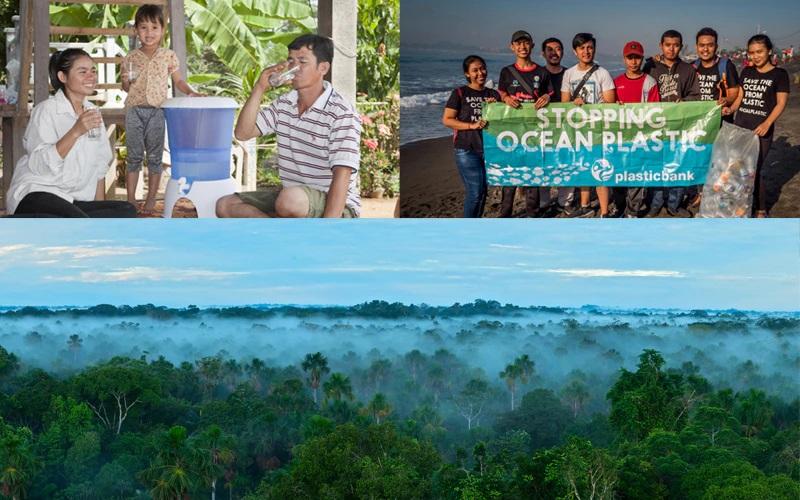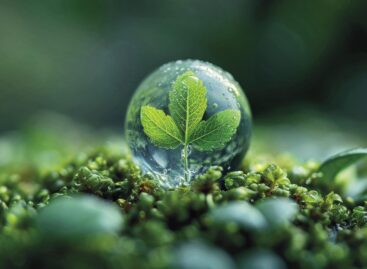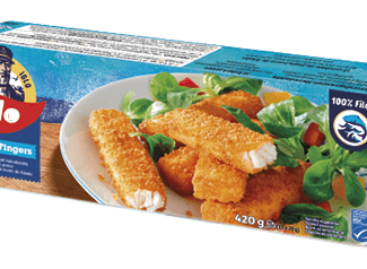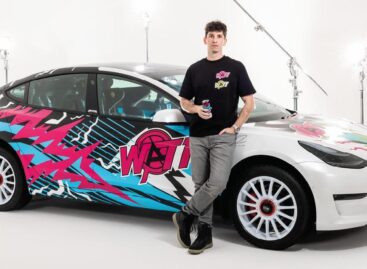Sustainability on all fronts: soap and hand towel dispensers without a carbon footprint
Today, sustainability is becoming an increasingly important issue in all aspects of our lives. We often hear about carbon footprints and emissions reduction, but what does this mean in everyday life? How can an everyday hygiene product be sustainable and environmentally friendly? Tork’s innovations offer answers to all these questions. With their introduction, Essity has become the first company in Europe to reduce and offset the carbon emissions of some of its soap, toilet paper and hand towel dispensers.

Paper towel dispensers are a common feature in public spaces where it is not feasible or practical to use fabric towels – In offices, cafés, restaurants, factories – and as such, Tork’s offering of carbon neutral certified dispensers to its customers can have a significant impact on a larger scale in terms of environmental awareness. Cabon neutrality is achieved by reducing and offsetting emissions over the entire life cycle, from the sourcing of raw material to the end of the products’ life.
Clean, safe drinking water in Cambodia, protected habitats in Indonesia
Essity, one of the world’s leading hygiene companies, has already reduced the carbon footprint of 27 Tork dispensers by using certified renewable electricity for manufacturing. In order to achieve carbon neutrality, the company is now offsetting the remaining emissions by investing in ClimatePartner-certified climate protection projects.
These are initiatives that provide or replace available resources for people in countries with less developed infrastructure. One of the selected projects, for example, provides clean drinking water in Cambodia, both reducing the energy otherwise spent on water purification (e.g. boiling) and indirectly improving public health conditions by reducing the burden on the health sector and thus, emissions. A different project is providing energy-efficient stoves to families in need in India. Tork is also supporting the protection of Indonesia’s forests, ensuring the long-term carbon sequestration and oxygen production capacity of the trees, as well as the protection of local biodiversity and unique wildlife.
The new products are now available in Europe.
“We are delighted to be able to offer carbon neutral Tork dispensers that are not only effective in ensuring high levels of hygiene, but also reduce the environmental impact on our planet. This new certification will help our customers achieve their sustainability ambitions,”
said Géza Nagy, Commercial Director at Tork.
Wheat straw and hand towel recycling
Essity has already committed to achieving net zero greenhouse gas emissions by 2050 and to replacing fossil fuels with hydrogen from renewable sources, biogas and geothermal steam in several of its plants. Several other initiatives demonstrate the company’s commitment:
- Use of alternative fibres. At present, nearly half of the world’s wheat straw (the stalk residue left over after wheat is harvested) ends up as waste. Essity is trying to eliminate this waste by using wheat straw as a raw material. This was made possible by an investment of around SEK 400 million (12 billion forints) to develop alternative fibre technology. The alternative fibre plant in Mannheim, Germany produces pulp from wheat straw from local farmers, which is used to make paper products for household and industrial hygiene.
- The world’s first hand towel recycling service. Tork has introduced a recycling service for paper towels. PaperCircle helps businesses make the transition to a circular economy by collecting and recycling used paper towels, turning waste into new paper products. With this solution, companies can reduce the amount of waste they generate by up to 20% and carbon emissions by at least 40%. This contributes to the company’s emission reduction target.
Related news
Fashion, drones and sustainability – the new face of agriculture at the AgriTech InnoExpo event
🎧 Hallgasd a cikket: Lejátszás Szünet Folytatás Leállítás Nyelv: Auto…
Read more >ESG: the majority don’t ask for postponement, preparedness level is increasing
🎧 Hallgasd a cikket: Lejátszás Szünet Folytatás Leállítás Nyelv: Auto…
Read more >Related news
What is a Tesla doing in the story of Hungarian energy drink WATT?
🎧 Hallgasd a cikket: Lejátszás Szünet Folytatás Leállítás Nyelv: Auto…
Read more >








